Wilders, the Movie (2010)
장르 : 다큐멘터리, TV 영화
상영시간 : 1시간 18분
연출 : Joost van der Valk, Mags Gavan
시놉시스
A look at the Geert Wilders effect.
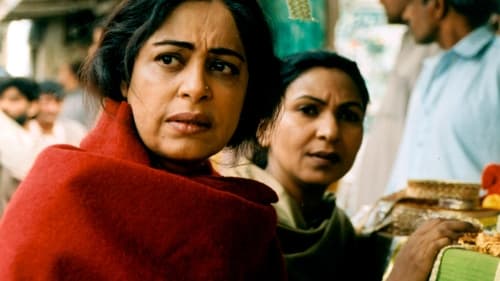
Ayesha is a widow with a secret past, living with her beloved son Saleem in a small town in Pakistan close to the Indian border. When the fires of Islamic nationalism invade their tranquil lives, Saleem and a few of the town's other young men are soon gripped by a religious fervour, and they attempt to bring radical Islamic law to their friends and neighbours. After a group of Sikh pilgrims arrive in town, tensions reach boiling point as Ayesha's haunted past comes rushing back.
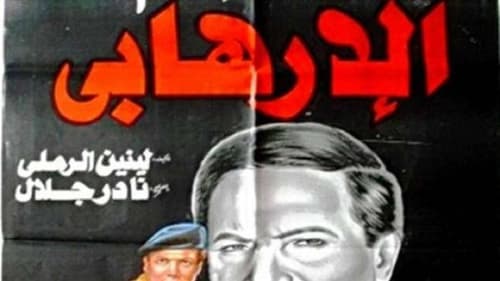
Ali Abd-El-Zaher is a member of an Islamic radical group which has been launching attacks against the government and the society under the orders of the spiritual leader Brother Saif. Ali manages to assasinate an officer, but as he escapes from the authorities he gets hit by a car driven by Sewsan, the daughter of a respected Muslim family living in the Maadi district. Sewsan's father who is a surgeon and his family take care of the injured terrorist who then tries to conceal the truth about his personality, such as his dislike of music, unveiled women and Western life styles.

WHAM! BAM! ISLAM! tells the story of Naif Al-Mutawa and his venture to create the first team of superheroes from the Muslim world called THE 99. Following the tumultuous journey of THE 99 from concept to reality, from acclaim to censure by Islam's cultural gatekeepers, from the edge of bankruptcy to plans for theme parks and an animation series, Al-Mutawa dodges cultural minefields and tries to tackle the harsh realities of the global marketplace while doggedly pursuing his vision to bring new heroes to Muslim children while re-introducing Islam to the West
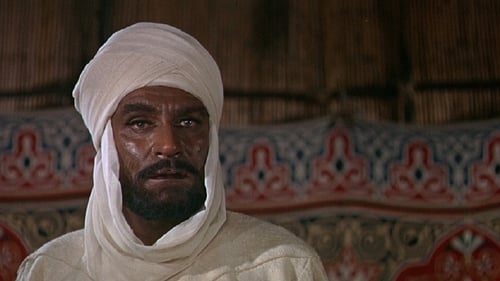
1821년 이집트는 수단을 침략. 영국의 힘을 빌어 통치하게 된다. 그러나 60년 후 영국인 장교 등이 지휘하는 1만이라고 하는 이집트 병사에 대해 사막의 사람을 모아 대항하는 남자가 있었다. 그들은 모하메드의 자손 마디라고 칭하고 광신적인 회교도 리더로 군림한 그는 수단의 도시 카슘을 포위하였다. 영국의 명예를 더럽혔다고 분노한 한편 수에즈운하마저 확보할 수 없으면 아프리카의 내란에는 관여할 수 없다고생각한 수상 그리도톤의 대응은 대영제국 지배하의 청나라나 아프리카제국에서 빛나는 전공을 지닌 영웅 고든장군을 비공식적으로 파견하고카슘에서 영국군과 이집트사람을 구출시키려고 한다. 고든은 카슘으로파견되고 마디 일당의 손에서 구해낼려고 애쓰나 운명은 고든에 대해 미소를 짓지 않는다.

Houda al-Habash, a conservative Muslim preacher, founded a Qur'an school for girls in Damascus, Syria when she was just 17 years old. Every summer, her female students immerse themselves in a rigorous study of Islam, in addition to their secular schooling. A surprising cultural shift is underway-women are claiming space within the mosque, a place historically dominated by men. Challenging tradition, Houda insists education for women is a form of worship. Using Qur'anic teachings, she encourages her students to pursue higher education, jobs, and public lives, while remaining committed to an interpretation of Islam prioritizing women's role as wives and mothers. In a world rarely seen, The Light In Her Eyes tells the story of a leader who challenges the women of her community to live according to Islam, without giving up their dreams. Shot right before the uprising in Syria erupted, the film is an exclusive look at a social movement thriving in a country controlled by a repressive regime

How to combine modernity and fundamentalist Islam. "Saudi Solutions" is a unique and revealing documentary about the lifestyles and attitudes of ambitious career womenin conservative Saudi Arabia - the only country in the Arabworld where women are obliged to cover themselves inabayas and aren't allowed to drive cars. Because of the strong influence of fundamentalist Islam on society, filmingis severely restricted in Saudi Arabia. With unique access to the Kingdom, Backlight had the opportunity to film the daily routines of Saudi working women. This documentaryfeatures a top gyneacologist, a TV news anchor woman, a photographer, and a university professor. It also introducesthe wealthy Prince Al-Waleed, who passionately promotes the acceptance of women into the workforce. He kindly invitesBacklight to his luxury desert camp, but there are no women to be found - only thousands of men.

Sohail is an ambitious law undergraduate who signs up with MI5 and, eager to play a part in protecting British security, begins an investigation into a terrorist cell. His sister Nasima is a medical student in Leeds who becomes increasingly alienated and angered by Britain's foreign and domestic policy after witnessing at first hand the relentless targeting of her Muslim neighbours and peers. With action set in Pakistan, Eastern Europe, London and Leeds, both feature-length episodes detail a tragic sequence of events from two distinct perspectives. At the heart of this thought-provoking drama is a revealing examination of British Muslim life under current anti-terror legislation. Britz ultimately asks whether the laws we think are making us safer, are actually putting us in greater danger.
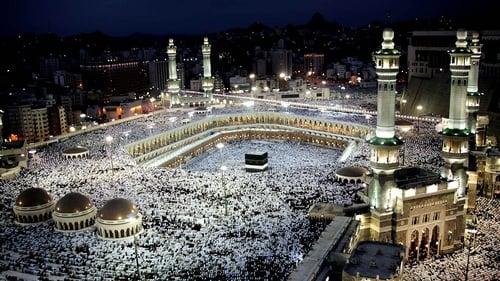
The events of the hajj have long remained veiled from non-Muslims, who are forbidden even to enter the holy city of Mecca. A team of Muslim filmmakers gained access to Islam's holiest place at the peak of the pilgrimage to document the holy event for National Geographic Television.

Filmmaker Robb Leech attempts to understand his stepbrother's journey from middle-class white boy in Weymouth to convicted terrorist. In 2010 Robb spent a year filming his stepbrother Rich after he turned his back on the world in which he grew up to become a fundamentalist Muslim called Salahuddin. Robb began filming with his stepbrother as he entered a strange new world where everyone talked about fighting jihad and implementing Sharia law. The result was Robb's acclaimed BBC Three documentary, My Brother the Islamist. When, in 2013, Salahuddin is convicted of preparing terrorism acts and jailed for six years, Robb is desperate to know what triggered his stepbrother, and others like him, to cross the line. Robb seeks out imam and psychologist Alyas Karmani to understand what drives young British-born men and women into radical jihadism. And he confronts Anjem Choudary, the man who converted Rich, about his role in Salahuddin's radicalisation

Four Belgian-Moroccan filmmakers in their thirties produce their latest film. Since adolescence they have managed to produce over thirty low-budget movies in which they often have played the main characters. Their movies are not only the sum of their fears and desires, but also a way of projecting an image of themselves towards their own community and the outside world. When one of them decides to radically change his life, their friendship and the future of their common cinema goals are threatened.

Writer and filmmaker Assia Djebar explores Algerian history, the psychological impact of war, and post-colonial female identity in this 1979 classic of film literature. Named for (and taking its structure from) a traditional song with five distinct movements, the film combines documentary-style observation with loose narrative form to tell the story of Lila, an Algerian expatriate returning to her country 15 years after independence has been won. In comparing her life with the lives and experiences of rural Algeriennes, Lila is able to put her childhood demons to rest and discover a new history -- one written in the ongoing strength of generations of women. Like much of Djebar's writing, the film has a strong subtext dealing with resistance to patriarchy and women's desire to appropriate the means of power and expression -- one of which, of course, is the filmmaker's camera.
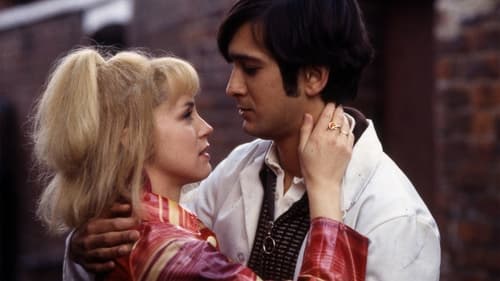
파키스탄인임을 자랑스럽게 여기는 스낵바 주인 조지 칸의 자녀들에게 인생은 타협의 연속이다. 자녀들에게 '겐지스'로 통하는 조지에게 있어 인생은 가족들에게 전통적인 파키스탄의 가치관을 전수시키기 위한 치열한 전투나 다름없다. 그러나 1970년대 영국 살포드에서 이런 사고방식이 통할 리가 없다. 조지의 아내 엘라는 영국인이고 아들들도 자신만의 생각이 확고하다. 미나는 사리를 입기보다는 공차기를 좋아하고,살림은 사실은 예술학교에 다니면서 공학을 전공하는 척 아버지를 속인다. 타리크는 바람둥이로 동네에 소문이 자자하고, 사지트는 아직 할례도 받지 않았다. 이미 한 명을 강제로 중매결혼 시킨 조지는 다른 두 아들도 큰 정육점을 운영하는 샤씨의 딸들과 결혼시키려는 계획을 세운다. 아이들의 아버지의 독제에 반항하기 시작하면서, 엘라는 남편에 대한 사람과 아이들의 정당한 권리 중 하나를 선택해야 하는 기로에 서게 되는데...

Throughout the Islamic world, each year hundreds of women are shot, stabbed, strangled or burned to death by male relatives because they are thought to have “dishonoured” their families. They may have lost their virginity, refused an arranged marriage or left an abusive husband. Even if a woman is raped or merely the victim of gossip, she must pay the price. Crimes of Honour documents the terrible reality of femicide – the belief that a girl’s body is the property of the family, and any suggestion of sexual impropriety must be cleansed with her blood. We meet women in hiding from their families, a brother who describes his reasons for killing the sister he loved, and a handful of women who have committed themselves to the protection of young women in danger of losing their lives.

The richest merchant in XIX century Sarajevo and his fellow travelers are captured by a group of bandits. In order to learn more about merchant’s riches, the bandits’ leader investigates the group and discovers that merchant’s wife, who cheated on merchant during one of his travels, later – in fear of his vengeance played to be possessed by “rage”. Looking for the cure, the merchant brings his wife to Ahmed Jusuf – former warrior and man of authority. Jusuf advised the merchant to take his wife and move into another region – having an idea on what was the story behind wife’s rage, bat also in an attempt to protect himself from the feelings that have already stifled.
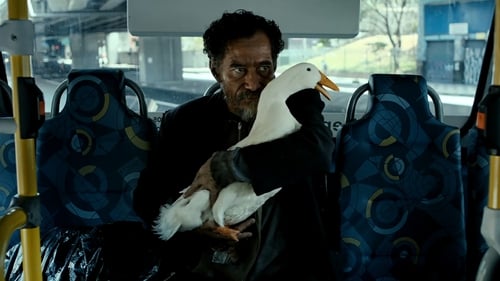
The first of four installments in the groundbreaking Heartbeat of the World anthology film series. Comprised of several short films by some of the world's most exciting directors, Words with Gods follows the theme of religion - specifically as it relates to an individual's relationship with his/her god or gods...or the lack thereof. In Words with Gods, each director recounts a narrative centered around human fragility, as well as environmental and cultural crises involving specific religions with which each has a personal relationship; including early Aboriginal Spirituality, Umbanda, Buddhism, the Abrahamic faiths, Hinduism, and Atheism. An animated sequence by Mexican animator Maribel Martinez is woven through each of the film segments, with each segment narratively connected as a feature-length film.

A foreign woman in a burqa brings her young son to a Copenhagen police station to file a complaint against her abusive husband, but the translator assigned to her seems unwilling to convey the true meaning of her words. A tense, diamond-hard film about cultural isolation and bureaucratic ignorance.
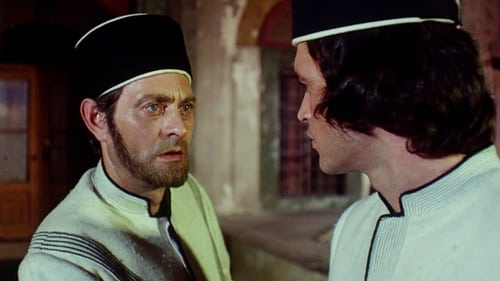
Ahmet Nurudin is a dervish and head of the Islamic monastery of the Mevlevi order in Sarajevo. He is a personification of morale and dogmatic belief, everything that Muslim religion of the Ottoman rule rests on. Throughout his life, the atmosphere of the city, the relations with the judge and the mechanism of government, the image of Ottoman Empire at the beginning of the nineteenth century is being revealed. Based on a highly praised novel by Meša Selimović.

In this sequel to "My brother the Islamist," we continue to follow Robb Leech as the tries to understand his stepbrother's journey and transformation from middle-class boy to convicted terrorist.

Turna is brought from Turkey to Germany by her husband Dursun to start a new life. She soon realizes that he keeps her locked up in their flat every time he leaves for work in order to save her from immoral influences of the Western society. The dream of a better life becomes an inner fight between her culture and her freedom.
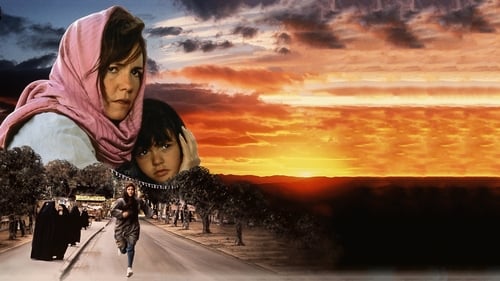
베티(샐리 필드)는 이란인 의사 남편과 함께 미국에 살고 있다. 미국내 이란인에 대한 반감이 거세지자 남편은 2주간만 이런 정세를 피해 이란으로 휴가를 가자고 제안한다. 남편이 품고 있을 고국에 대한 향수를 생각하며 베티는 그의 제안을 받아들인다. 그러나 이란땅을 밟자 마자 남편의 태도는 급변한다. 처음엔 이란도 살만한 나라라며 회유하지만 시간이 지나면서 아내와 아이에게 이란식 풍습과 문화를 강요하고 급기야 손찌검까지 한다. 베티는 이런 상황에서 탈출하기 위해 안간힘을 다 쓰지만 이란에서 빠져나가기란 쉽지 않다. 이제 남편에게 부인이란 사람이 아니라 감금돼 있는 하나의 소유물이다. 마침 미국에서 아버지가 위독하다는 연락을 받고 미국으로 갈 수 있는 기회를 얻지만 딸은 데려가지 못한다는 것. 베티는 결국 야밤도주를 감행한다.



















